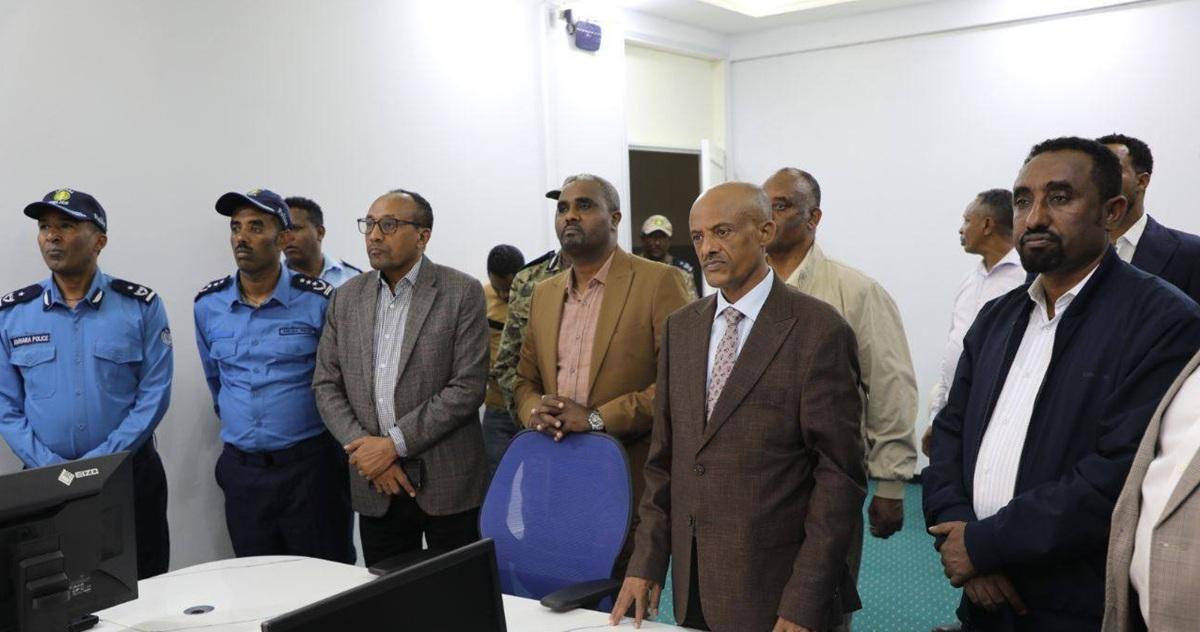Africa-Press – Ethiopia. September 16, 2025 2 minutes read Addis Abeba – The Amhara Regional Security Council has announced that a strategic direction has been set to transition the region’s “relative peace into comprehensive and lasting peace.”
According to the Amhara Regional Police, the announcement followed an evaluation of the region’s security situation. Mengesha Fentahun (PhD), head of the Amhara Regional Communication Bureau, said the region’s security challenges are gradually improving.
“Militants who were previously in hiding have accepted the peace process, are undergoing training, and are reintegrating into their communities,” Mengesha said.
He added that the Security Council reviewed rehabilitation efforts for militants who opted for the peace process and confirmed that these efforts would be strengthened. Mengesha noted that special focus will be placed on enhancing education and development initiatives across the region.
This is not the first time regions returning to peace have been announced. In June Minister of Peace Mohammed Endris said in an interview that “all zones of the Amhara region are very peaceful.” Speaking to state-affiliated Fana Television, the minister stated that out of 265 districts, “only two” lacked full government presence. He also said there was “virtually no force” capable of confronting government forces or taking control of cities, though he acknowledged the presence of “criminal elements.”
However, in the same month, the federal government of Ethiopia admitted that peace in the war-torn Amhara region “has not been fully secured as the people desire” and that civilian movement “has not been completely freed from the threat of kidnapping and looting.” In a statement issued on 29 June, the Federal Government Communication Service also said that “children in the region have not fully returned to school” and added that development conditions remain “less than conducive.”
The current announcement comes roughly two months after the federal government’s admission and reports ongoing clashes between government security forces and Fano militants, which continue to inflict human and material losses.
Education in the region is among the sectors worst affected by the conflict.Mulunesh Dessie (PhD), Coordinator of the Social Sector and Deputy Chief Administrator and Head of the Amhara Regional State Education Bureau, said the bureau launched a campaign to register 7,445,545 students for the 2025/2026 academic year.
Mulunesh highlighted a steep decline in student enrollment. “Due to the current instability in the region, 2.5 million students were out of school in the 2023/2024 academic year. In 2024/2025, 4.1 million students who should have been registered remained out of school. This number is larger than the population of many African countries,” she said.
In November 2024, a forum of higher education institutions in the region, themed “A Call to Action for a Humanitarian Response Strategy for the Amhara Region,” highlighted the severe humanitarian impact of the conflict, presenting findings alongside international aid organizations and other stakeholders.
Tafere Melaku (PhD), the forum’s main convener, said millions of people in the region remain “in extreme suffering.” The conflict has caused extensive destruction of health facilities, and shortages of essential medicines have worsened the situation.
Ayele Teshome, State Minister for Health, reported that since 2019, more than 450 health centers, over 1,800 health posts, 40 hospitals, and more than 120 ambulances have been damaged due to the conflict. “The impact on health and nutrition services is dire and requires an immediate response,” he said.
For More News And Analysis About Ethiopia Follow Africa-Press






